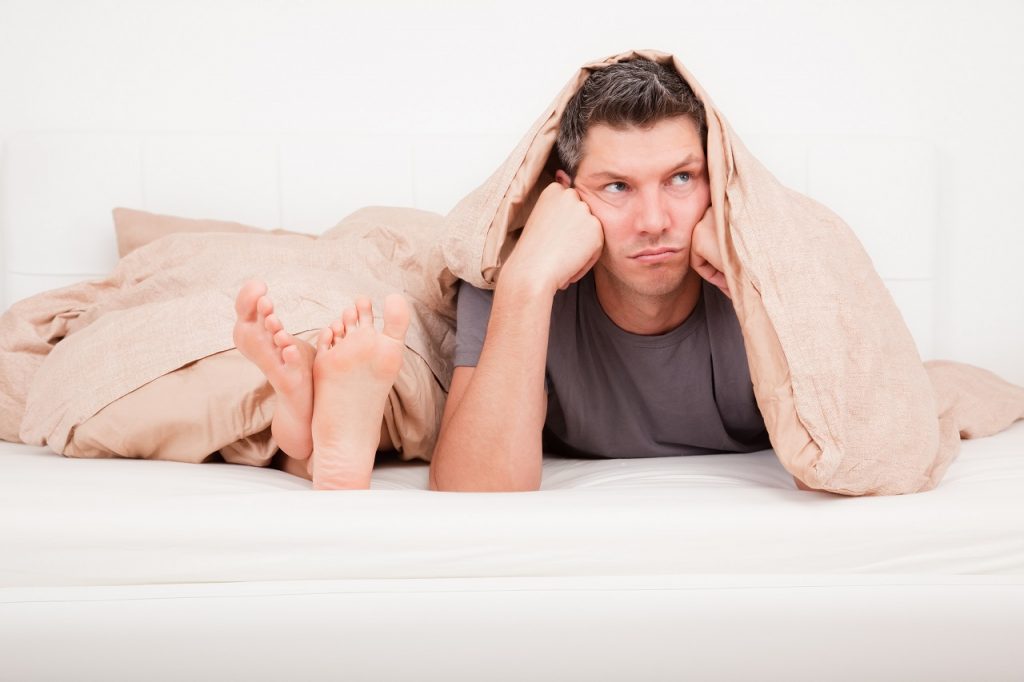 As a woman indoctrinated in the Indian culture, for a long time I believed that a woman should not initiate sex. It’s a man’s job. I believed that women should be pursued both inside and outside the bedroom. Women in my home observed purdah in front of their men and were always fully clothed. I ended up carrying this belief right since my childhood, through my adulthood even after studying from an illustrious college and working for several years thereafter. In my relationships, I would wait for the man to initiate, to undress, and to penetrate. Once in college, my boyfriend asked me to ride him and I was terrified. How can I be in power?
As a woman indoctrinated in the Indian culture, for a long time I believed that a woman should not initiate sex. It’s a man’s job. I believed that women should be pursued both inside and outside the bedroom. Women in my home observed purdah in front of their men and were always fully clothed. I ended up carrying this belief right since my childhood, through my adulthood even after studying from an illustrious college and working for several years thereafter. In my relationships, I would wait for the man to initiate, to undress, and to penetrate. Once in college, my boyfriend asked me to ride him and I was terrified. How can I be in power?
Though my sex personality is submissive, by choice and also my general easy-going nature, I like to initiate things and let him take over. Alfred Kinsey, a pioneer in the area of human sexuality rightly said that “the only universal in human sexuality is variability.” Each one of us is more different than alike when it comes to our sexual preferences and tastes. Even Vatsayana, the ancient Indian philosopher who wrote Kamasutra classified men and women basis the shape of their genitals.
Men with a small penis are known as a “Hare” (rabbit) then an average penis sized man would be called a “bull” and a plus-sized man a “horse”. Women with a smaller vagina or “Yoni” will be known as a “deer”, the average would be a “mare” and with a large vagina the “elephant”.
Let us talk about the difference in Libidos
When you hear the words “sex drive,” “libido,” or “desire,” you probably just think of one thing – being in the mood for sex. But it is much more complex. There are actually two completely different sex drive types:
Spontaneous Sex Drive – You have a spontaneous sex drive if:
- You feel the desire for sex at seemingly random times across the day.
- You might be busy at work and the idea of having a night of extraordinary passion flashes out of the blue.
- You are the one who initiates sex most times in your relationship.
- You tend to want sex more frequently than your partner.
- You can feel turned on in a lot of different situations.
Responsive Sex Drive – You have a responsive sex drive if:
- You rarely think about sex.
- Sex doesn’t sound appealing until you’re in the middle of it.
- At the end of sex, you think, “That was fun. Why don’t I want that more often?”
- You rarely initiate sex with your partner
- You tend to want sex less frequently than your partner.
- The situation needs to be “just right” in order for you to feel turned on.
In general, men tend to have the spontaneous desire, while women tend to have responsive desire. Let us understand the sexual turn-on process, it has got two elements:
- Mental Arousal – When you get the thought of wanting sex or feeling that having sex is good
- Physical Arousal – When your body readies for sex. Women get wet, men get erect. For both men and women, their nipples get erect, heart rate increases, breath deepens, and so on.
The difference between spontaneous and responsive sex drive is:
- Spontaneous Sexual Desire/ Libido – Mental desire comes first; physical arousal later
- Responsive Sexual Desire/ Libido – Physical arousal comes first; mental desire later
Spontaneous Libido is when your mental desire comes first. You’re just going about your routine day when you realize that you’re in the mood. You go and initiate sex with your partner, and then get physically aroused once you get going. Responsive Libido is the exact opposite. You don’t feel mentally interested in sex until you’re already physically aroused. You might be watching an erotic scene in a movie, and start thinking, “hmmm, that sounds good.” Or you might be kissing your partner, and start to feel interested in taking it a step further.
Why Does It Matter?
Most people think that desire is supposed to be spontaneous because that’s how we see it in the movies. A couple will both spontaneously feel the sexual desire at the exact same moment. They also happen to have the time, mental space, and privacy to have sex at that exact same moment.
If you don’t know that Responsive sex drive exists, both partners in a relationship can be frustrated or sad that the Responsive partner never feels spontaneously turned on. You may end up thinking the Responsive partner never wants sex. But that’s just not true! The Responsive partner does want sex. They just need to feel physically aroused first, and then their mental desire will follow.
How To Bridge This Gap?
If You’re The Spontaneous Partner: You should be willing to take the time and the effort to get your responsive partner physically aroused. You can engage in light foreplay (kissing, cuddling, tickling, massaging, hair stroking) to get them interested in sex since for them physical arousal precedes their mental interest in sex.
If You’re The Responsive Partner: You should be open to being physical before you feel mentally interested in sex (since you now know you’ll not feel mental interest before being physical)
Both of You: Have to respect that you have different types of desire, and be willing to work as a team to create the sex life you both want.
We hope this article helps you. For more on sexual wellness, check out Healthy Reads or tune in to LIVE sessions by our sexual wellness expert Pallavi Barnwal on GOQii Play. You can also connect with her on Facebook: https://www.facebook.com/pallavibarnwalcoach
#BeTheForce
 Sex is a rarely discussed subject in the public domain and that leads to spreading a lot of misinformation out there, which leads to unrealistic expectations and disappointment. Despite being a sex educator, I myself had been living in one of these sex related myths that had a mighty toll on my relationship and hence, it becomes important to discuss all those sex related myths that we carry as beliefs in our intimate relationships. Let us bust all of them, one by one!
Sex is a rarely discussed subject in the public domain and that leads to spreading a lot of misinformation out there, which leads to unrealistic expectations and disappointment. Despite being a sex educator, I myself had been living in one of these sex related myths that had a mighty toll on my relationship and hence, it becomes important to discuss all those sex related myths that we carry as beliefs in our intimate relationships. Let us bust all of them, one by one!
 Erectile dysfunction is one of those things that affects many couples, and people still don’t talk about it enough. For some it could be a source of embarrassment and confusion, especially because it is associated with aging, illness or hormonal imbalances.
Erectile dysfunction is one of those things that affects many couples, and people still don’t talk about it enough. For some it could be a source of embarrassment and confusion, especially because it is associated with aging, illness or hormonal imbalances.


